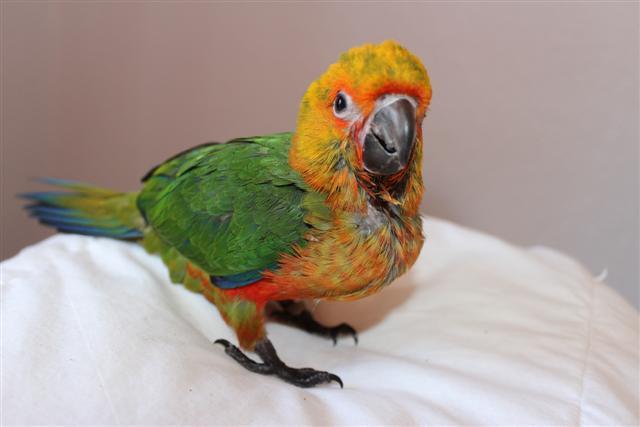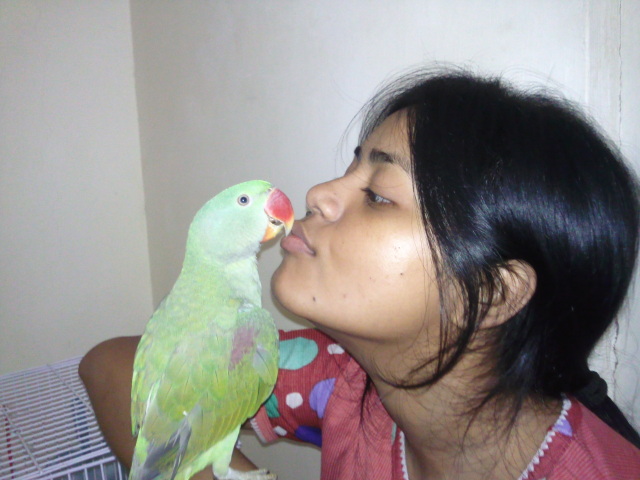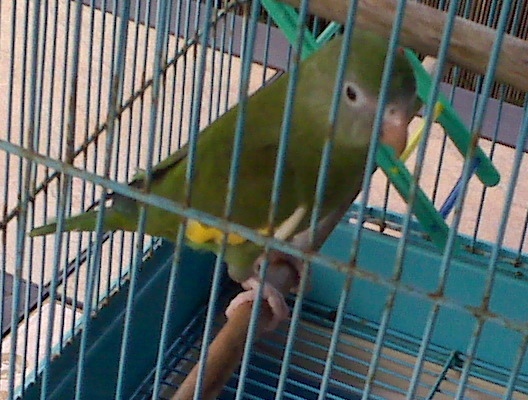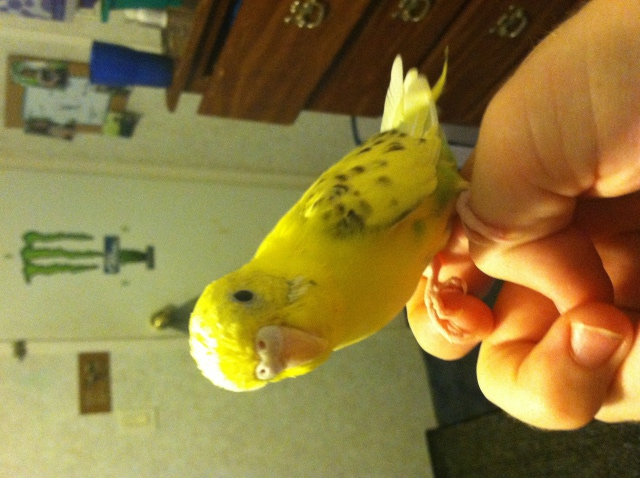QuestionI am thinking about getting an African Grey. I just want to know every thing on an African Grey.
Thanks!
Darcy
-------------------------------------------
The text above is a follow-up to ...
-----Question-----
Can you tell me everything you need to know about African Grey Parrots?
Thanks!
Darcy
-----Answer-----
Everything? There's not enough space here :)
Check this link - and get back to me with any specific questions you have. Do you have a new bird?
http://www.geocities.com/animalrelief_info/
Answer I'm happy to hear that you're researching this bird before just going out and getting one.
With a lifespan of up to 70 years and as much a need for daily interaction as a human toddler, African Grey's are known as one of the smartest birds of the parrot world.
They cannot be kept caged at all times. They need more than 2 hours a day 'out of cage time' (our macaws get at least 7 hours).
A pellet diet supplemented with high quality seed (no sunflower seeds) and daily fresh foods such as vegetables and fruits is a necessity as well. Whole grains, dark, leafy greens, squash, berries, melons, apples, legumes - these birds need to eat healthy in order to stay healthy.
They need challenges and puzzles, wood to chew and at least three different perches (material, width and type).
They're going to chew through their wood toys like buzz saws, and that's important for their beak health as well as mental health. These things must always be provided.
Their cage needs to be the largest possible cage made for the type of bird they are. Just like you need room to move around in your home and the ability to leave for even more 'space', an African Grey (and any other parrot) needs that too.
You need to have a schedule for life. 12 hours of sleep time helps prevent behavior problems and in females, troublesome egg laying (which can be a health threat). We suggest sleep cages in a bedroom or other quiet, dark room - but covering their day cage and keeping the lights and noise down for 12 hours is an option too.
The schedule needs to be maintained year 'round. If you generally arise at 7 a.m., the bird should go to bed at 7 p.m. and be the first thing you do in the morning. An enthusiastic awakening with vocalizations helps control frustrated vocalizations as a result.
And then there's that. Vocalizations. Grey's are very good talkers, but no one should ever get a bird for conversation. Some just don't talk (or talk much) and that's the way it is. Birds call and scream and they nip (or bite). They cannot be disciplined, yelled at or swatted without lasting negative effects that may cause even more problems. From feather pulling until they're bald to not being able to be handled, becoming problem screamers or cage bound - a nice balance and bond between human and bird is truly necessary.
Take a look at our page about birds www.4AnimalCare.org (when you get there, click on 'birds')
If you have any specific questions not covered here (or there), let me know.

 Jenday Conure Weaning?
Question
Castor the Conure
Hi
I have a 9 week o
Jenday Conure Weaning?
Question
Castor the Conure
Hi
I have a 9 week o
 can i give my parrot chole(chana) called in hindi
Question
my little chaddi alexa
dear sir,
can give chan
can i give my parrot chole(chana) called in hindi
Question
my little chaddi alexa
dear sir,
can give chan
 What type of parrot is this?
Question
Friendly bird
A week ago ths small parrot flew
What type of parrot is this?
Question
Friendly bird
A week ago ths small parrot flew
 Indian Ringneck Health Issue
QuestionI have an Indian Ringneck who had been neglecte
Indian Ringneck Health Issue
QuestionI have an Indian Ringneck who had been neglecte
 Parakeet gender
Question
Parakeet
Hi, I looked for an expert und
Parakeet gender
Question
Parakeet
Hi, I looked for an expert und